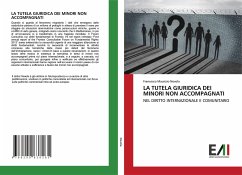In law, the term minor (also infant or infancy) is used to refer to a person who is under the age in which one legally assumes adulthood and is legally granted rights afforded to adults in society. Depending on the jurisdiction and application, this age may vary, but is usually marked at either 18, 20, or 21. Specifically, the status of minor is defined by the age of majority.[verification needed] In countries like Japan, Taiwan, Philippines, and South Korea, a minor is a person under 20 years of age. In many countries, including Australia, Canada, India, New Zealand, United Kingdom, Brazil and Croatia, a minor is presently defined as a person under the age of 18. In the United States, where the age of majority is set by the individual states, minor usually refers to someone under the age of 18, but can be used in certain areas (such as gambling and the consuming of alcohol) to define someone under the age of 21.In the criminal justice system in some places, minor is not entirelysynonymous, as a minor may be tried for a crime (and punished) as a juvenile or an adult (usually only for extremely serious crimes such as murder).








